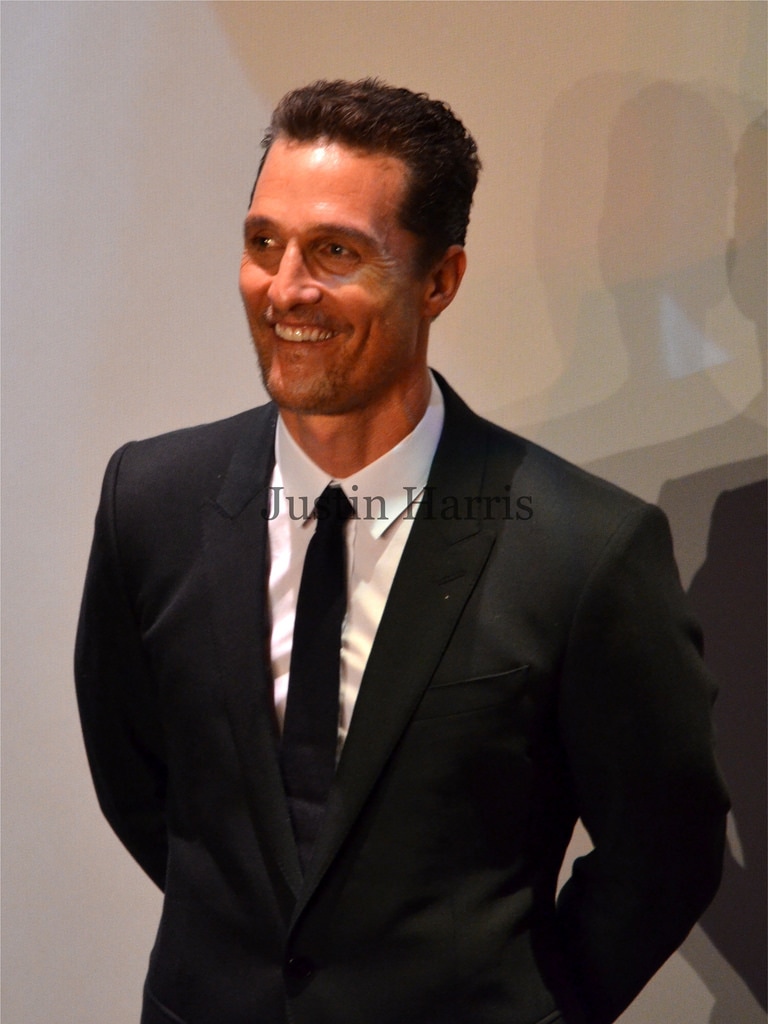|
As I have been preparing for a webinar I am conducting tomorrow night, my colleagues and I have been troubleshooting some technology issues. When I project my screen to the webinar, my colleague would say, "I can see the video but I can't hear the sound" or "I can still see your control panel" or "I can't see anything now". While it has been frustrating, it simply goes along with one of my mottoes for teachers: "Technology is fantastic, but it isn't always going to work the way you want it. Expect the unexpected." Sometimes, we find that changing a setting helps solve the problem. Sometimes, the answer lies in standing back and taking a look from the 30,000 foot view. And sometimes, it is simply time to reset and maybe laugh a little bit.
1. Change your perspective 2. Have a vision 3. Don't take yourself too seriously Check out this great work using miniatures to depict certain scenes. While the work itself is extraordinary, the ability to see things from a different perspective is absolutely amazing. Seeing popcorn as wadded up paper is brilliant, right? What if we all had that ability---to see things from a different perspective? Wouldn't it make work and relationships and...well, life a bit easier? Stephen Covey said it best when he said, "Seek first to understand, then to be understood." What if, when I am boarding the airplane, the person in front of me is taking their own sweet time getting to their seat? "Hurry up. I just want to sit down," I might be thinking. But what if that person just had major surgery and simply can't move that fast? Changing my perspective to be less about only myself can help immensely. Looking at the miniatures for the first time, I said to Dave, "Who thinks up this stuff?" I suppose it is someone who is not tied down to the ordinary but rather sees things in a much different context than most of us. I will admit that I can get bogged down in the nitty-gritty details of things without seeing the forest for the trees (or the broccoli, in the case of the miniatures). One of my very favorite places to travel for work has become the Pacific Northwest, namely near Forks, Washington. As I drive alongside Crescent Lake, I am humbled and awed by the intense beauty of the picturesque scene of lake, forest and mountains. And yet...every once in a while, I find myself distracted by tiny issues that I am working around in my brain, that I look up and realize I missed some of the last few gorgeous turnouts. When I was a principal and we had to write those annual reports complete with vision and mission statements, I sometimes felt like we were simply wordsmithing to check a box. Now I can stand back and see that having a vision for a country, a vision for a school district, a vision for a classroom, or even a vision for a workshop I am teaching is critical. It gives us purpose. Dave has always been my rock when it comes to reminding me not to take myself too seriously. About 20 years ago, we had just had K.C., our first Yellow Labrador Retriever, spayed (poor thing had to walk around with a pink ace bandage wrapped around her mid-section while she healed) when I found out I had to have a hysterectomy. When I awoke from the surgery, Dave was there with a stuffed dog wrapped in a pink ace bandage. The note said, "You can wear my pink wrap while you heal. Love, K.C." More stories like this are in my book, Letting Go of K.C. Taking ourselves too seriously may keep us from being open to new, innovative ideas for fear that we might look weird or silly for thinking of them. But if we are open to not staying so stoic, we may be able to see that a potato chip can look like a crop for a miniature to rake. Just for today, perhaps we can take a lesson from the miniatures. In the meantime, I will be working on my webinar. :) Happy Communicating, Shelly
0 Comments
You may be thinking I have stretched a bit to find a way to use Matthew Mcconaughey as the topic for this week's blog. Perhaps it is a bit self-indulgent, but, as I listened to a recent interview with him, I found myself nodding my head to several things he said that mesh with my life and learning beliefs. If you are wondering if next week's blog might be about connections to Brad Pitt, you will just have to wait and see.
Here are my thoughts from Matthew's interview: 1. Differentiation is not only good for student learning, but it also helps adults: Mcconaughey told the story of getting his role as Wooderson in "Dazed and Confused". It was Matthew's first major role in a movie, and Richard Linklater, director, gave each actor an assignment. He handed each one of them a mix tape containing music he felt each individual character would listen to. Every tape was different, as each character had different musical tastes. The assignment was to listen to the music for the next few days to get into the character. How cool! I thought. What a great way to differentiate the needs of each actor in getting to know his/her character. I couldn't help but think that this would be such an amazing assignment for high school students---when reading classic literature, each student must choose a character and create a tape (did I just date myself, totally?) of three songs that character might listen to, along with justification for each one, complete with references. 2. Get ready to make every day a great day: Matthew told another story of his dad, who apparently was quite the dreamer. Despite times of being down on his luck, his dad would leave the house every morning, telling his sons, "Boys, today, I'm gonna hit a lick", in reference to making a really big sale. Matthew said that his dad's outlook has stuck with him and he holds a pretty firm belief that we shouldn't do what we don't believe in or love. Whatever your line of work...I know about some of the jobs in education as that has been my experiences in life...it's hard work but it is hopefully something you love. One of my dear friends and colleagues is 74 years old and still more passionate about teaching and learning than some young folks I know. Passion, I believe, is the stuff that gets us up in the morning and ready to go for the next day! It also gets us through the rough patches in life. I love this quote: If you have to support yourself, you had bloody well better find some way that is going to be interesting. - Katherine Hepburn 3. Know and respect laws, rules, and policies before attempting to change them: Matthew Mcconaughey grew up in Uvalde, Texas (maybe his Texas roots have something to do with why I love him). He talks about some of his family members fondly, calling them "outlaws". He said, "They all taught me you have to learn and follow the rules so you might be able to break them later on." I loved that. I have a firm belief in learning about the laws, rules, and policies that affect me in my life---personally and professionally. I recently taught an Educational Leadership course on School Law and Policy. One of the main take-aways of the course, in my humble opinion, was that you aren't going to be given a handbook with every answer to every problem, but you can learn the basics of what is expected, first, then be prepared to make decisions with those as your foundation. I remember, as a principal, feeling quite conflicted at times about district policy or state law and how they seemed to be in direct opposition to the right thing to do for kids. I am always so very hopeful that people who are in charge of making difficult decisions and changing policy and law in education are folks who have direct experience in the classroom and have the best interest of public school children at heart. Just for today, perhaps we can listen for good life lessons in everything we do, even from our favorite celebrities! Happy communicating! Shelly For a number of years, I have used the serenity prayer as a source of support in times of trial, frustration, and...well, just daily life. If you aren't familiar with it, here is a chance to get to know it. "God, grant me the serenity to accept the things I cannot change, the courage to change the things I can, and the wisdom to know the difference. " There may or may not have been times in my life in which I have tried to shoehorn my own will into things I likely knew I couldn't change but I wanted to try to manhandle it anyway. I am not certain how many times a person needs to learn a lesson before actually imprinting it one's brain, but I do know I am glad there isn't a "once you mess up three times, you are out of luck" card. Attempting to manhandling life is apparently not exclusive to my own life, as evidenced by the myriad ways people have altered the serenity prayer to meet their own feelings. Here is one such way: Why is it so difficult to simply accept life as life (or, as some of my dear friends say, "accept life on life's terms")? My own belief (and isn't that the one that matters? :) ) is that we want what we want when we want it and have a difficult time giving up control, even when it is perfectly evident that things are not going to turn out perfectly. For example, as Dave and I prepared to board our plane yesterday on a return trip to Tucson from Las Vegas, we saw the announcement that our flight was now going to be delayed by one hour. Knowing that I had to get home to unpack and re-pack for another trip today, I let out a sigh. I joked with Dave, "Apparently, what planes are in Vegas stay in Vegas." He rolled his eyes. We're working on that.
One of the other passengers on our flight reacted a bit more strongly to the announcement by expressing his frustration quite loudly. If I had children, I would have been covering their ears. I whispered to Dave, "I'm guessing that if this airline could get irate, hungover, or despondent people out of Las Vegas sooner than later, they would." Some things are simply out of our control. Now, you notice I used an example depicting another human being in a not-so-great light rather than shining the spotlight on my own foibles. Is that shameful? I suppose that would encompass my using the second part of the serenity prayer---the courage to change the things I can. The way I look at this part is through the lens of my lack of perfection but my willingness to at least make some progress. I do have the capacity, if I so choose, to make some changes in my own walk, I just have to be willing to do the work. I have learned over the last few/many years that I do best when I am not left to my own devices. For me, that involves relying on God and other spiritual friends whom I love and adore. I saw this anonymous post online about the serenity prayer for different Myers-Briggs types that I thought would be fun to share:
As I prepare to board my flight to an area in which there is likely ice on the roads, I am going to put that prayer on steroids. I will do the same for you. Happy Communicating! Shelly  I'm no stranger to having deep conversations with my cab driver...or Uber driver...or Groundlink driver. My typical theory is: as long as you are headed to the hotel or getting me to the airport on time, we can talk about whatever you want. Often, we talk about the difference in the weather between their city and mine. I have gotten advice as to the best places to go in Africa for a safari (information I fully intend to use at some point in my bucket list life). Once I am on the plane with my headphones on, I may look a bit anti-social in my own little pod world, but driving to the airport? I am usually game for conversation. On my Uber trip back to O'Hare the other day, my driver began by asking, "What were you doing at this school? I didn't think they had school today." I told him that I was working with administrators and master teachers on helping teachers grow in their own practice. That must have been code for "Begin telling your passenger every belief you have about education, in general" because, the next thing I knew, he was asking, "Do you like the Common Core?" "Why are American schools so bad?" and "Why can't schools just let students learn at their own pace?" Wow. Did I mention this was when I was leaving work to go to the airport? I asked him to clarify his questions, like "What do you mean by American schools being 'bad'?" He went into a polite diatribe of how his son was in 2nd grade but already knew all his multiplication tables but the school was too busy trying to teach his son how to process 7 X 5 in three different ways. "It doesn't make any sense. I memorized all my facts and it worked for me," he continued, talking about growing up in his own country before moving to America when he was 12. I would begin trying to explain how learning how to reason through things can often be just as important a skill as memorization/rote learning. Each time I began, I would get halfway through a sentence, and he would completely interrupt with another question or another diatribe. I may not be the sharpest tool in the shed, but I quickly learned he didn't really want to learn anything new, he simply wanted me to hear what he had to rant, I mean say. So, I just listened. Until...he stopped the rant and shared with me that he believes American schools must be doing something right as "most of the biggest and most successful companies are American-owned." We discussed that for a few moments, which means he listed many of the more successful companies, asked me why I thought that was, I would begin to answer, then he would interrupt me with more facts and figures and opinions. I was interested, so I googled profitable companies in the world and found this Fortune article. I also told him that I felt the definition of successful schools had to be clarified. Are we talking about schools that produce students who can pass achievement tests? Are we talking about schools that produce students who are well-rounded in their education and are able to participate with others in discussion? (hint-hint) In other words, I wonder sometimes what we are looking for in "success". If we look at schools, for instance, in China versus US, what are the differences? Check out the article. It reminded me of reading Amy Chua's Battle Hymn of the Tiger Mother (2011) that emphasized the differences between Western culture and Eastern culture when it comes to education and values. As the cab driver pulled up to the airport, I got out, and my driver handed me my suitcase. He thanked me for the "good talk" we had, and I smiled and told him I hoped for a long and successful school career for his son. As I started to walk away, he called out to me, "Hey! Don't stop working with teachers. It is very good what you are doing to help people in our country." Happy Communicating! Shelly |
Shelly ArnesonCategories |




 RSS Feed
RSS Feed